Aliens(1986 movie)Much like
Alien, I’ve been putting this review off for some time now, for essentially the same reasons. In fact, if someone hadn’t requested a review of this movie, I probably wouldn’t have bothered. It’s a bit harder for a novice reviewer like myself to review a movie as popular and well known as this simply because it’s been reviewed and analyzed so many times already. I guess that’s why I’m actually reviewing all of the movies contained in the “Quadrology” DVD release I have, even if I’m dragging my feet on it, because I’m hoping in a way to add a larger context to all of the films by looking at all of them one right after the other like this. As with my review of
Alien, I will take a look at the movie and briefly analyze it, but the main focus will be a discussion of the extended cut and how the additional scenes affect the story.
As I said, I approach this review with some trepidation.
Aliens is probably even more well-known than
Alien, the movie it’s a sequel to. And thanks to the much quicker pacing and action-oriented plot, it seems that this movie is more well thought of by modern movie audiences. I’ll spare you the lamentation about the short attention spans of mainstream movie-goers, and point out that this is actually not without reason. As with any work of art, it’s a matter of what it brings to the table.
Alien took what was essentially a B-movie horror plot, set it in space, and gave it an A-movie treatment.
Aliens added action and space marines. And while this has become something of a cliché, that’s only because this movie did it so well. While this movie has gone on to inspire so many other movies and TV shows, it took its inspiration from Robert Heinlein’s “Starship Troopers” and arguably did a better job with it than the actual film adaptation did, perhaps because Paul Verhoeven’s
Starship Troopers took quite a bit from
Aliens’ take on space marines as well.
Much like the original film, the plot of
Aliens is simple, but effective, and a logical follow-up. In what is a minor spoiler for
Alien if you haven’t yet seen that movie, Ellen Ripley was the sole survivor of the commercial towing vessel
Nostromo, but while she managed to kill the alien that killed the rest of her crew (or at least blow it out into space and set it adrift), she was by no means home free, adrift in a small shuttle in the vastness of space. And just because Ash, the android that the unnamed company snuck aboard her ship failed to bring the alien back for analysis as ordered, doesn’t mean the company would have any reason to give up on the venture since they obviously already knew about the crashed ship and its contents prior to the beginning of the first movie. Well, one would think so, which is what makes it a bit odd that the main drama of this movie seemed to be the result of one company employee.
Aliens starts with the shuttle from the end of the first movie adrift in space, only to be approached by another ship of some kind that docks with it. After a bit of a tease, this is revealed to be a human salvage vessel. An interesting factoid about this opening scene is that the shuttle set had to be rebuilt from scratch, using the scenes from the first movie as a guide. Which is probably why they remembered to put the grappling gun Ripley used to push the alien out into space at the bottom of the hatch where it had gotten caught. Anyway, Ripley is taken in to a hospital that is part of a massive space station in orbit of Earth, where both she and the audience learn she’s been in hyper-sleep for 57 years. The company debriefs her and holds an inquest wherein they basically decide she’s full of crap but can’t really do anything other than revoke her flight license. This puts her into a position for Carter Burke, a company representative, to talk her into going to a mission to check on a colony that was located on the planet
Nostromo landed on in the first movie (LV-426) to find out why it went silent. As one might guess from the title, this is due to a bit of a xenomorph infestation.

The difference is that this time, the company is sending in the Colonial Marines. Well, slightly over a dozen of them, anyway, led by a really green lieutenant. While part of the drama in the first movie was due to a lack of anything other than an improvised flamethrower to use as a weapon, the Colonial Marines find out soon enough that all their firepower doesn’t really matter. This is contrasted with a young girl, known as Newt, who managed to survive for a fairly long amount of time after the Aliens wiped out the entire colony. Much like the crew of the
Nostromo, the Marines are picked off a few at a time until they are forced to face off against a large number of aliens in a pitched battle that leaves most of them dead or captured. This includes Newt, who is captured and brought to the alien nest that is located in the atmospheric processor that is the reason no one has to don a space suit in this movie. Ripley goes to rescue her, and along the way learns that there is indeed a queen alien laying all the eggs that the facehuggers come from.
If you haven’t seen this movie I certainly recommend that you do. I honestly can’t talk up this movie nearly enough. It’s well-paced, has a concise, well-plotted out story, filled with relatable characters who we follow as they discover the fate of the colony on LV-426, and then suffer much the same fate themselves. True, they aren’t very fleshed out, but just as in the first movie, they feel like real people, except maybe the lieutenant who feels more like a caricature. The soundtrack by James Horner is effective and memorable, in spite of the fact there is a definite influence from
The Wrath of Kahn in one of the main themes. Still, it really adds to the atmosphere, especially the scenes in the alien nest.
Going into more spoiler-heavy territory, it’s well-established that this movie was heavily inspired by the Vietnam conflict, though oddly enough, this doesn’t seem to be very well discussed. Most reviews seem to focus on the action and suspense elements of the movie, and that’s fair enough as the movie is very good when viewed as just a straight-up action movie. That is basically what director James Cameron does best, and it can be seen in most of his work. Of course what can also be seen in most of his work is that he’s something of a hippie, though this has only become more obvious in movies like
The Abyss and
Avatar, where the anti-military attitude he seems to have really comes through. To his credit, this wasn’t really apparent as an overall theme in
Aliens, and mainly comes from the incompetent officer leading the Marines and the influence the company has over the military, and to a lesser extent with the cocky attitude the Marines have prior to encountering the aliens.
The Vietnam theme is also pretty apparent once someone points out the parallels for you, unless you happened to notice it on your own, of course. In any case, the Colonial marines represent the US military, a technologically advanced force that had become accustomed to easily besting an enemy in battle, while the aliens represent a much less advanced force that is able to succeed through use of the environment and overwhelming numbers.
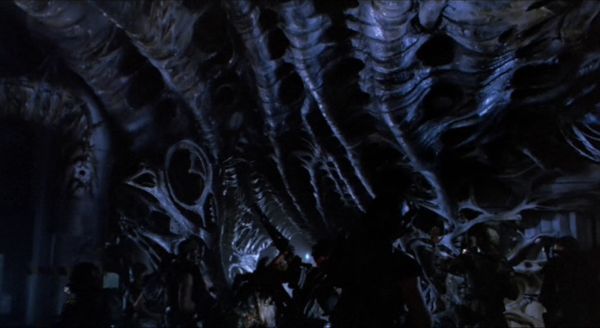
“There must be some kind of way out of here…”
It’s been said that this movie made use of military advisors, and that it’s one of the more accurate representations of how a military squad operates. Apparently the actor who played Sergeant Apone was actually a Vietnam veteran, who actually had been a non-commissioned officer. I’m somewhat uncertain as to how accurate the portrayal of Marines is here, as my only experience with the military comes from the Air Force ROTC program. There are a couple of areas I have a bit of a hard time with, though, which is that such a large ship has such a small compliment, and is left entirely unmanned while the Marines are on the planet, and that the flight crew of the drop ship are of such a low rank, and enlisted rank at that. I’m not sure how the Marines do it, but I know the Air Force likes its pilots to be officers, and most of the flight crew tends to be made up of officers as well on planes that have more than a pilot or pilots operating it. “But it’s the future!” you might say. Well, maybe, I just have a hard time buying it, that’s all. Willing sense of disbelief and all that.

I just have a sneaking suspicion that this suited the story as much as any budgetary need (a smaller cast), as this means there is no authority outside of Lieutenant Gorman and Burke.
Anyway, this movie actually manages to mix horror and action in a way not really seen very often. There’s a definite creepy feeling as the Marines explore the seemingly abandoned colony, and then enter the atmospheric processor in their effort to locate the missing colonists in the lead-up to their first battle with the titular aliens. Aside from using camouflage to their advantage, we also learn that the xenomorphs apparently don’t show up on infrared, making them that much harder to fight. And in much the same way Captain Dallas was killed early on in the first movie, Sgt. Apone is taken out not long into this first battle, which costs the Marines their most experienced and level-headed leader, and we can see the chaos that results from it soon afterwards as the Marines panic and their LT is left unable to handle the situation.
The theatrical cut of the movie does the job as far as not only telling the story, but also in getting across the desperation of the Marines as they find themselves stranded on LV-426, and trapped back at the main colony complex as they try to avoid the same fate as the colonists, though they are doing essentially the same thing as the colonists tried by barricading themselves in a small corner of the main building. Oh, and by the way, the atmospheric processor is going to go Chernobyl on them because a stray round or hundred hit the cooling system, just like Ripley warned against. Nice job, Vasquez.

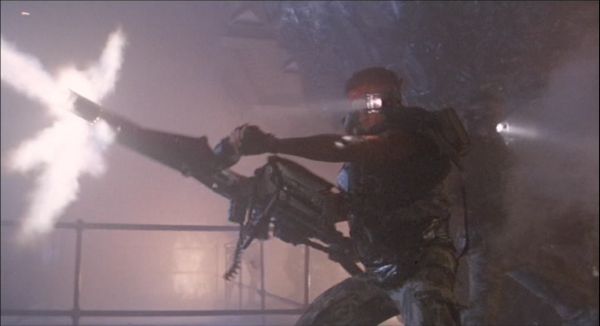
This leads naturally to the question of what exactly the extended cut adds to the movie. Well, we learn the name of “the company” from the various wall logos around the colony prior to its xenomorph infestation, and the nametags some of the employees have. At the same time, we also get to see a bit of the colony before everyone in it is killed. It’s true that this doesn’t add a whole lot to the story, but I kind of like it. I also liked all the scenes that were cut out about the automated sentry guns the Marines were able to recover from their crashed drop ship. I honestly can’t figure out why those scenes were cut, as they help establish why the aliens took as long as they did to attempt to attack the Marines in the main building, as these automated guns were able to just barely hold off their initial attack before running out of ammo. And aside from the motion detectors, the guns help to warn of the impending final attack before they are taken out.
There is something of a disagreement amongst fans about the other thing the extended scenes add, or at least there was at the convention panel I went to about the movie which discussed it. Because as it turns out, Ripley actually had a daughter. While nothing is said about a significant other, Ripley learns that her daughter has already died (at a fairly young age, even for modern standards, oddly enough) while she was out on her long hypersleep. The main contention the fans in that panel seemed to have with this is that it somehow weakened the Ripley character, by making it more apparent that she was essentially adopting Newt as a surrogate daughter. Personally, I don’t really know how this weakens her character at all. It was already apparent in the theatrical cut that Ripley was adopting Newt and being a mama bear for her. And Ripley still kicks ass in exactly the same way as she did before, she still shows herself to be more competent and brave than the Marine officer, she still rescues the Marines from getting completely wiped out, and the Marines still adopt her as their surrogate officer, including the actual Marine officer when he regains consciousness toward the end of the movie. If anything, it simply helps to explain why Ripley was so desperate to rescue Newt when she was taken toward the end of the movie, even after she quite rationally argued against a rescue mission for all the Marines who were taken in the first battle. Some might argue that Corporal Hicks only went along with it because he wanted to put his dick in Ripley, but I’d argue that it was pretty clear that the two of them had a mutual respect that had been built between them even as they developed a mutual attraction for one another. Which is part of why it sucks he never made it into the next movie, the other part being that he was just a really awesome character.
One of the great and at the same time tragic things about this movie is the growth of its main character, Ellen Ripley. What she went through on the
Nostromo robbed her of a lot, and left her without much of a future to look forward to in spite of the fact she survived and made it all the way back to Earth. When she’s introduced to the Marines at the beginning of the movie, she’s kind of meek and unsure of herself, thanks to the treatment she got from the company, and the Marines don’t see her much differently from Burke and their new lieutenant, all of whom they note eat separately from them. Yet after the attack that robs them of their LT, NCO, and means of getting back to their ship, she steps up and becomes their leader. While Hicks was technically in command of them at that point, they all deferred to her, and it was obvious they respected her. Of course, I suppose having their lives saved by her probably helped a lot with that.

Ripley also overcomes a bigotry she has against Bishop, an “artificial person” as he prefers to be called. It’s somewhat understandable she’d have a bias against androids seeing as the first and last one she met tried to kill her by shoving a rolled up nudie magazine down her throat, but just as the Marines overcame their bias against her, she overcame her bias against Bishop through working with him.
The movie also has a pretty strong cast of supporting characters. We don’t get to see most of them fleshed out all that much, but most of them are pretty interesting, if a bit clichéd/stock. Vasquez actually has a trope named after her due to the many characters like her in many other movies, but I liked her and the way she kind of had a thing going for Drake.
I guess it’s also worth noting that it’s kind of cool an action movie from the ‘80s had female Marines going into combat with their male comrades, though the others (yes, there were a couple others) tend to be forgotten.
Anyway, Hicks was probably the most standout of the other characters, a cool, almost laid back Marine who actually kind of blended into the background, in part because he didn’t say much. But when it came time to step up, he did, and he did a pretty good job of it, too, taking on the role of leader for his fellow Marines after being robbed of their leadership. Of course part of it is that Michael Bien is a pretty good actor who can add a lot to the characters he plays when he’s well directed.
So I can’t help but echo the sentiment many before me have expressed, which is that this movie is a classic. Just like the first movie, it had a lot of influence on everything that came after it. It wouldn’t even be out of line to argue that it actually had more influence than the first movie did. It could be that the action made it more accessible than the straight-up horror of the first movie, or it could be the US’s odd fascination with the military (something
Starship Troopers satirizes), but whatever the reason, it definitely left an impact, and I can’t recommend that you watch this movie enough if you haven’t already.
As for what version of the movie I’d recommend, well, I honestly can’t say one way or the other. Personally, I prefer the extended version, simply because I feel it adds to the story, even if it doesn’t add a lot. The argument against, aside from the odd one about it somehow making Ripley seem like she’s weaker for adopting Newt as a surrogate daughter, is that the additional scenes were cut for a good reason – pacing. Just like for the first movie. There’s some truth to that, as the additional scenes do slow down the movie a bit, it’s just that I feel they don’t slow it down that much for what they add to the story, but this is going to be a matter of personal taste. As always, the rating is a bit hard for me on a movie like this, so I’m basically going to base it on the rating I gave the first movie. Strictly speaking, neither of these films is without flaw, but they are so well written, shot, and composed that I have a difficult time giving them anything less than a 10/10. YMMV.

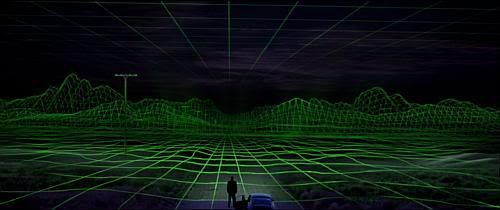



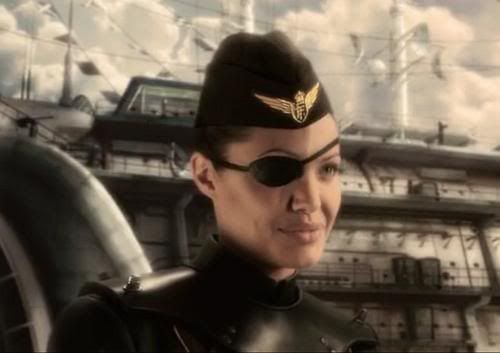
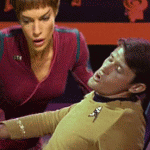


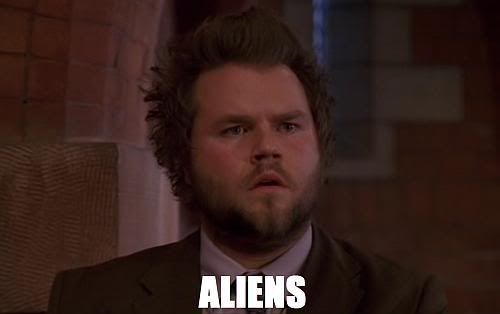
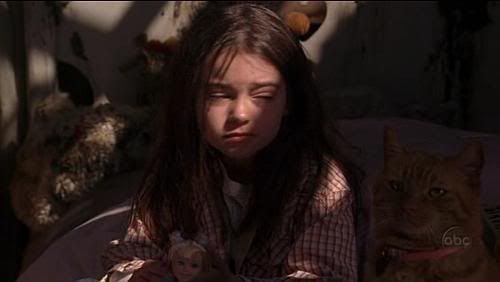
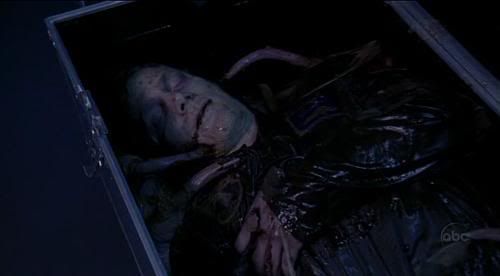
 ). Oh, that's right, he was totally conspiring with another evil clone who was intent on wiping out humanity, and the military in order to keep things under wraps. As it turns out, Tom was mainly concerned with trying to hide out in the name of peaceful coexistence, mainly because he was actually a clone that got made following a plane crash back in 1996 and didn't want to end up getting poked and prodded by men in lab coats.
). Oh, that's right, he was totally conspiring with another evil clone who was intent on wiping out humanity, and the military in order to keep things under wraps. As it turns out, Tom was mainly concerned with trying to hide out in the name of peaceful coexistence, mainly because he was actually a clone that got made following a plane crash back in 1996 and didn't want to end up getting poked and prodded by men in lab coats.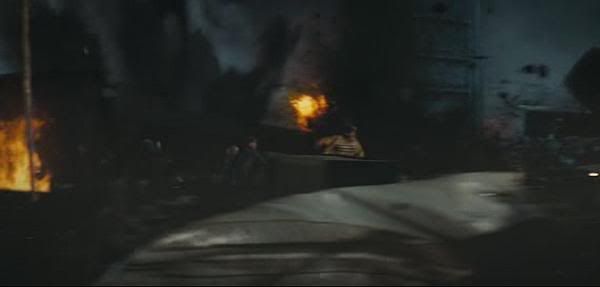
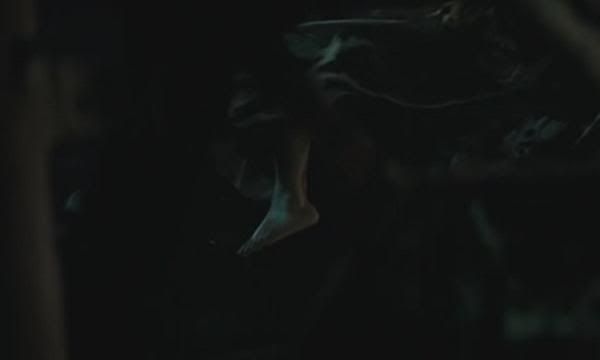
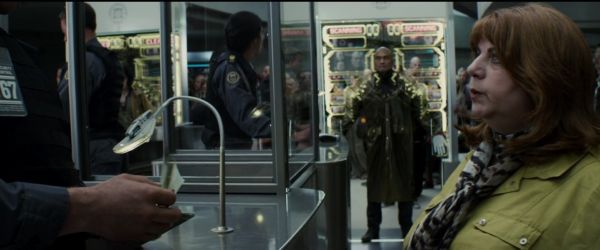
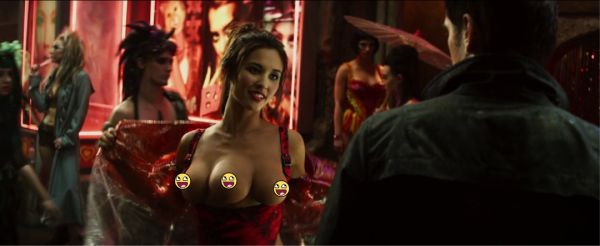

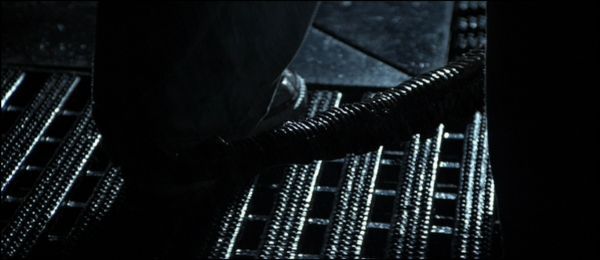

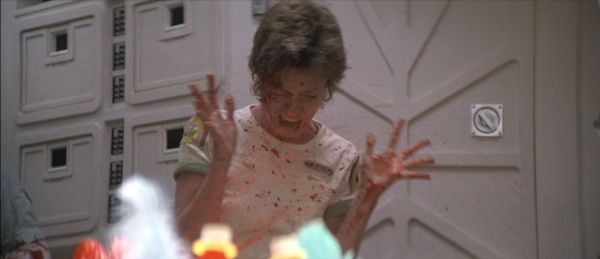
 10/10.
10/10.
